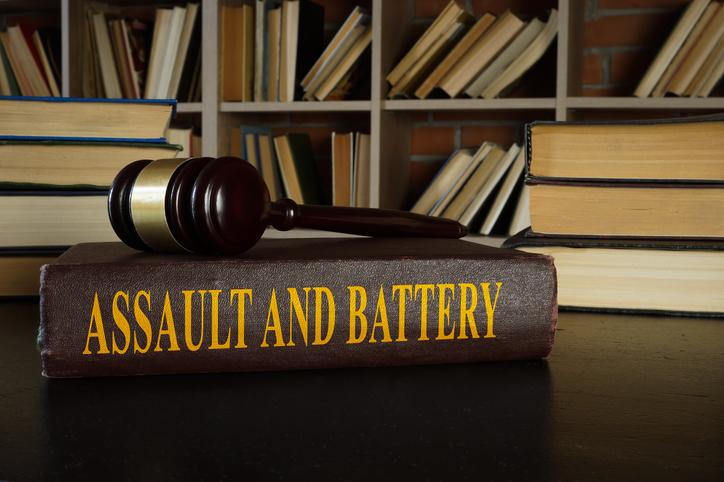I Don’t Know What I Would
Have Done Without Him...
Assault & Battery
Chicago Assault and Battery Defense Attorney
Assault and Battery under Illinois Statute 720 ILCS 5/12-1

In Illinois, assault and battery are viewed not merely as acts of violence but as serious criminal offenses that can profoundly affect the lives of all involved parties. Governed by Illinois Statute 720 ILCS 5/12-1, these offenses carry significant legal consequences and highlight the state’s commitment to maintaining public safety and order. We will now provide an in-depth look at the legal frameworks surrounding assault and battery in Illinois, examining the definitions and distinctions between the two, the penalties associated with each, and the specific circumstances under which these misdemeanors can escalate to felonies, such as in cases of domestic violence. It further delves into the prosecution’s burden of proof, the structured criminal trial process, viable defenses, and the critical importance of competent legal representation by an experienced attorney like David Freidberg.
Legal Framework and Definitions
Under Illinois law, assault and battery are defined as separate but related offenses. An assault occurs when an individual knowingly engages in conduct which puts another in reasonable apprehension of receiving a battery. Battery, however, involves the physical act of causing bodily harm to another person or making physical contact of an insulting or provoking nature with another person. These definitions serve as the basis for all subsequent legal action and are crucial for determining the appropriate charges and corresponding defenses in such cases.
The statute categorizes most instances of assault and battery as misdemeanors, but the charges can be elevated to felony status under certain conditions, such as the use of a deadly weapon, the occurrence within certain locations like public property or schools, or against certain protected classes of people including but not limited to police officers and senior citizens.
Penalties and Consequences
The penalties for assault and battery under Illinois law vary widely, depending on the circumstances of the case and the backgrounds of those involved. Simple assault might result in fines and a short jail term, whereas aggravated battery could lead to long prison sentences. This variance is designed to proportionally punish offenders while also deterring future crimes.
A conviction can have extensive consequences beyond the immediate legal penalties. Individuals may face lasting damage to their personal and professional reputations, difficulty securing employment, and significant personal and financial strain. This underscores the need for a strong legal defense to potentially mitigate these long-term effects.
When Domestic Violence Escalates to a Felony
In Illinois, domestic violence escalates to a felony under several scenarios, particularly when the accused has a prior history of domestic violence or when the incident involves a severe threat or physical harm with a deadly weapon. These felony charges are indicative of the state’s zero-tolerance policy towards repeat offenders and those who pose a significant threat to family members or household occupants.
The elevation of domestic violence to felony status brings with it heightened penalties and underscores the seriousness with which Illinois views the protection of its citizens from domestic harm. The law aims to provide victims with the safety they need while ensuring that perpetrators face appropriate legal repercussions.
Criminal Trial Process
The trial process for assault and battery cases in Illinois is comprehensive, starting from the arrest and moving through arraignment, pre-trial conferences, trials, and potentially sentencing. Each stage is crucial and requires careful navigation to ensure the rights of the accused are protected while also upholding the justice system’s integrity. The prosecution must prove each element of the offense beyond a reasonable doubt, a high standard that necessitates a robust defense.
Potential Defenses and Legal Representation
Several defenses are available to those accused of assault and battery, including self-defense, defense of others, lack of intent, or even mistaken identity. Crafting a defense requires a deep understanding of Illinois law and a strategic approach to the evidence and circumstances of the case.
This is where Attorney David Freidberg’s profound legal knowledge and experience become invaluable. His strategic insights into criminal defense allow for the nuanced handling of assault and battery cases, ensuring the best possible outcomes for his clients.
Facing charges of assault and battery can be daunting, with the potential for serious consequences if not properly managed. Attorney David Freidberg provides expert legal representation, emphasizing a strategic defense tailored to the unique aspects of each case. His commitment to his clients and his understanding of the intricacies of Illinois criminal law make him a pivotal ally in any criminal defense case.
Contact the Law Offices of David L. Freidberg For Your Free Consultation
If you or someone you know is facing such charges in the Chicago Metropolitan Area, it is crucial to seek experienced legal help. Contact the Law Offices of David L. Freidberg, P.C. at (312) 560-7100 or toll-free at (800) 803-1442. Offering a free consultation around the clock, David Freidberg ensures that your rights are vigorously defended throughout the legal process. Don’t face these charges alone; secure the defense you deserve to protect your future.

